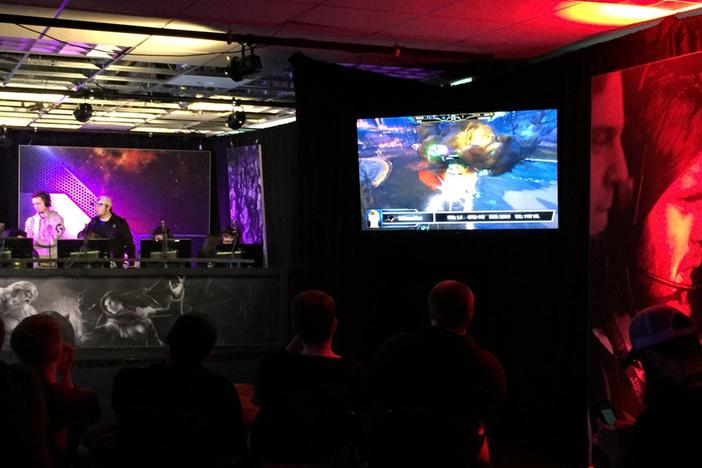
Section Branding
Header Content
"Father of the Internet" Worries About Impending "Digital Dark Ages"
Primary Content

When the man who helped build the architecture for the Internet tells you that he worries about "the digital dark ages," it's probably a good idea to listen.
As a young engineer employed by the Defense Advanced Research Projects Agency in the late 1970s, Vint Cerf co-authored the TCP/IP protocols for the network of networks known as the Internet; hence his unofficial title, "father of the Internet." Cerf, now a Google vice president of Internet evangelism, spoke about his concerns for all the bits of data generated in our digital lives during an Atlanta Press Club "Newsmaker Breakfast" on Monday.
"When it comes to the question of how our society assures that the digital content we create is preserved, we have more to do than we have done," Cerf told me in an interview. "Figuring out how to make sure that content is replicated..how it is curated, may turn out to be very important."
At issue is the relatively fleeting nature of hardware and software, he explained. The documents, photos, and other collections of digital data that we store in the cloud or on inexpensive thumb drives may seem safe and easy to get to now. But what happens when technology advances, hardware and software become obsolete, tech companies go out of business?
"This loss of the ability to interpret digital information really worries me a lot," Cerf said, "so I think this is something that companies like Google and others who are housing all that information should be thinking: how can I assure that my users can not only get their bits out, but can also get the software they correctly need to interpret those bits?"
The law may have to adapt to the threat of a digital dark age. "We may need to have to to give digital preservation some intellectual property rights that we don’t necessarily grant."
Excerpts from our wide-ranging interview with Cerf can be seen in a forthcoming episode of SciTech Now Georgia. Some examples:
On the argument that the FCC's net neutrality/municipal broadband decisions will stifle innovation:
"I think that what happens is that if you fail to innovate, someone else will. The argument that no one else could innovate except me, and you have to give me all these privileges and no constraints in order to induce me to innovate, does not compute for me, and I would cite the Google Fiber activity as a prime example of a response coming from the private sector from an institution that had not offered these services before.”
On the need for more STEM (Science, Technology, Engineering and Math) education in public schools:
"I think that no student should graduate from high school without having had a chance to learn how write software. Not that I want them all to turn into programmers. I want them all to understand why it’s hard to do it well. I want them to appreciate the kind of thinking that’s required to get a computer to do what you want it to do. This is a kind of analytic skill."
On whether the Digital Divide still exists:
"I do worry about the nature and scope of access that people have. It is true, however, that people who first get access to the Internet today typically get it through mobile. Mobile is a less expensive way of propagating access than digging holes in the ground or stringing fiber on poles."
Finally, I asked Cerf his thoughts on geek culture, particularly science fiction movies and books. He's always been a fan of old-school "hard science" sci-fi, but a friend recently introduced him to John Scalzi's "Old Man's War" series. "Scalzi is (Robert) Heinlein reincarnated," he said. "His dialogue is beautiful, it’s wonderful, it’s fresh and of course his premises are really good. My instant reaction was, oh my God, it's Heinlein again."
When the man who helpe





